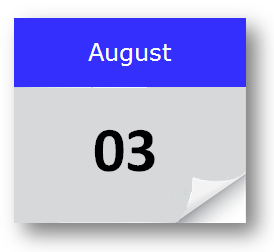This Day in History: 1492-08-03
In 1492, Columbus set sail west in search of a new sea route to India and China and discovered America.
Although the North American continent had been discovered previously by Icelandic Leif Erikson in the 11th century (and possibly other Norse explorers), Christopher Columbus’s accidental discovery came at a time when European powers were looking to colonise and expand their territory. This led to the first European settlements in America, which have developed into some of the most powerful nations in the world.
Trade routes to Asia had been very important to the countries of Europe, and all the great powers had relied on this trade in order to grow and become the great world powers. Through this trade, a huge network across the land had developed and became known as the “Silk Road” due mainly to the huge silk trade from China to Europe. However, this trade network became increasingly dangerous, particularly with the fall of the Mongol Empire and the growth of the Turkish or Ottoman Empire. For over a hundred years, the European powers had looked for a new sea route to the Far East, which had been accomplished by travelling around Africa.
Christopher Columbus was born in the Italian Republic of Genoa between August and October 1451. He first began travelling in his teens and settled for some time (between 1477 – 1485) in Portugal, where he had a wife and son. Columbus was well-read and had convinced himself that the Japanese shore lay some 2,500 miles away from Italy if travelling west. His assumption was based on the Earth being much smaller than it is and that Asia is much larger (despite popular misconceptions, it had been known since the time of the ancient Greeks that the Earth was round). When Columbus put forward a proposal to King John II of Portugal, on two occasions, that he could reach India in a short voyage travelling west and requested finance, the King’s scholars rejected Columbus’s estimation and plan. Unperturbed, Columbus eventually managed to get backing from the King of Spain and set sail on the 3rd of August 1492.
On the 12th of October, Christopher Columbus and his crew landed in the Bahamas and claimed the land for Spain. Shortly after, on the 28th of October, he landed on what he assumed was China but was actually Cuba. On the 5th of December, Columbus landed on Hispaniola. Columbus and his men were initially welcomed by the natives whom Columbus called Indios (or Indians), but when they landed on they’re last stop of the voyage on the Samana Peninsula, they first encountered hostility.
Columbus returned a hero and made three more trips of discovery to what he continued to believe was Asia.
